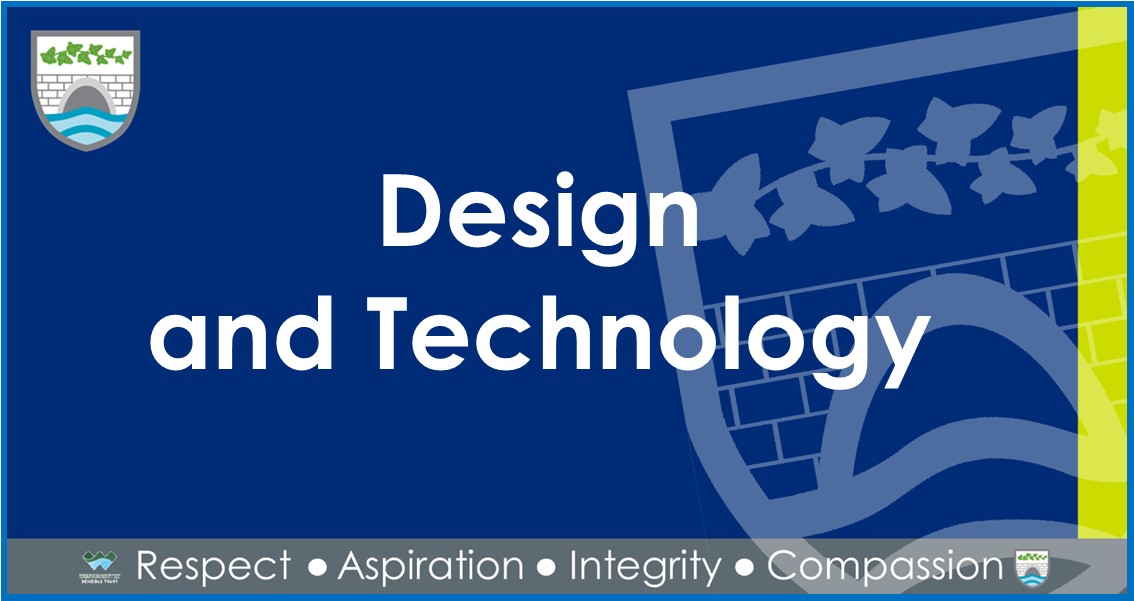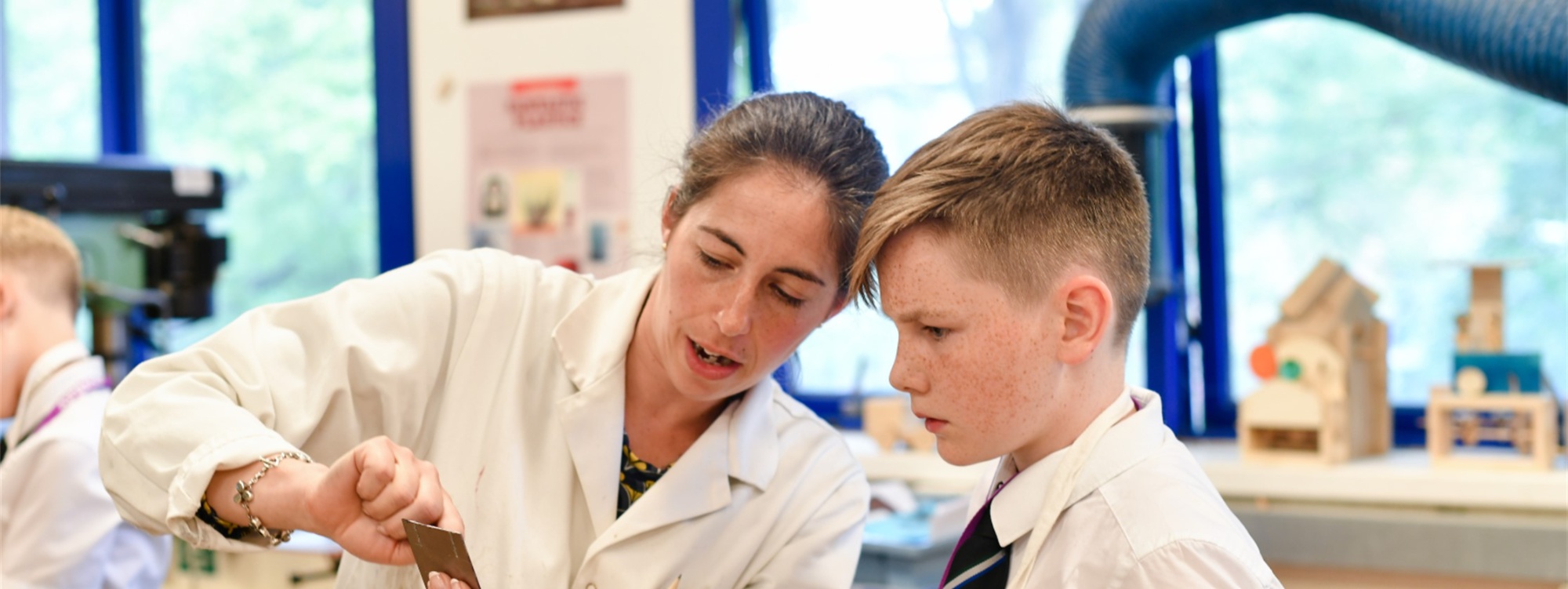Design and Technology
Please note: if you are viewing this page on a mobile phone, you may need to view in Landscape in order to view all of the content.

 Head of Department: Adam Strawford
Head of Department: Adam Strawford
Welcome to the Design and Technology Department
at Ivybridge Community College
Design and Technology is an inspiring, rigorous and practical subject which prepares young people to function in the designed and made world. Using creativity, imagination and increasingly sophisticated resources, students design and make products that solve real and relevant problems. At Ivybridge Community College students follow a curriculum that is both challenging and varied. They will gain an understanding of the technical and practical expertise needed to design and make high-quality products and as part of their work with food, students are taught how to cook and apply the principles of nutrition and healthy eating.
As a Department we strongly believe that Design and Technology is vital to the future success of our students as they both live and work in a modern world that is rapidly evolving. We want to ensure that our students can be part of creating a brighter future for us all.
Key Stage 3
Key Stage 3
The national curriculum for Design and Technology aims to ensure that all students:
- Develop the creative, technical and practical expertise needed to perform everyday tasks confidently and to participate successfully in an increasingly technological world.
- Build and apply a repertoire of knowledge, understanding and skills in order to design and make high-quality prototypes and products for a wide range of users.
- Critique, evaluate and test their ideas and products and the work of others.
- Understand and apply the principles of nutrition and learn how to cook.
Through a variety of creative and practical activities, students are taught the knowledge, understanding and skills needed to engage in an iterative process of designing and making.
When designing, students are taught to:
- Use research and exploration, such as the study of different cultures, to identify and understand user needs.
- Identify and solve their own design problems and understand how to reformulate problems given to them.
- Develop specifications to inform the design of innovative, functional, appealing products that respond to needs in a variety of situations.
- Use a variety of approaches to generate creative ideas.
- Develop and communicate design ideas using annotated sketches and detailed plans.
When making, students are taught to:
- Select from and use specialist tools, techniques, processes, equipment and machinery precisely, including computer-aided manufacture.
- Select from and use a wide range of materials, components and ingredients, taking into account their properties.
When evaluating, students are taught to:
- Analyse the work of past and present professionals and others to develop and broaden their understanding.
- Investigating new and emerging technologies.
- Test, evaluate and refine their ideas and products against a specification, taking into account the views of intended users and other interested groups.
- Understand developments in Design and Technology, its impact on individuals, society and the environment.
- Understand the responsibilities of designers, engineers and technologists.
As part of their work with food, students are also taught how to cook and apply the principles of nutrition and healthy eating. Instilling a love of cooking in students opens a door to one of the great expressions of human creativity. Learning how to cook is a crucial life skill that enables students to feed themselves and others affordably and well, both now and in later life.
Key Stage 4
Key Stage 4
At Key Stage 4, students are given the opportunity to select an area of study such as GCSE Food Preparation and Nutrition, and GCSE Design and Technology.
The GCSE specifications enable students to understand and apply iterative design processes through which they explore, create and evaluate a range of outcomes. They enable students to use creativity and imagination to design and make items that solve real and relevant problems, considering their own and others’ needs, wants and values.
Students acquire subject knowledge in design and technology that builds on Key Stage 3, incorporating knowledge and understanding of different materials and processes in order to design and make, with confidence, prototypes in response to issues, needs, problems and opportunities. Students also learn how to take design risks, helping them to become resourceful, innovative and enterprising citizens. Through the critique of the outcomes of Design and Technology activity, both historic and present day, students develop an understanding of its impact on daily life and the wider world and understand that high-quality Design and Technology is important to the creativity, culture, sustainability, wealth and well-being of the nation and the global community.
Key Stage 5
Key Stage 5
Finally, our Key Stage 5 curriculum offer is A Level Design and Technology: Product Design which helps students take a broad view of Design and Technology, develop their capacity to design and make products and appreciate the complex relations between design, materials, manufacture and marketing.
This creative and thought-provoking qualification gives students the practical skills, theoretical knowledge and confidence to succeed in a number of careers. They will investigate...
Historical |
Social |
Cultural |
Environmental |
Economic |
...influences on Design and Technology, whilst enjoying opportunities to put their learning into practice by producing prototypes of their choice. Students will gain a real understanding of what it means to be a designer, alongside the knowledge and skills sought by higher education and employers.

